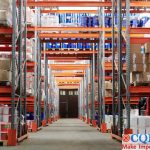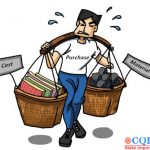What Are the Challenges for Small Importers With Less Office?
If an importer sets up a purchasing office in China, that shows the importer hopes to better manage the supply chain in China. However, most importers are not aware of the complexity and difficulty of supply chain management. They simply think that everything will be fine if an office manager is recruited. They are totally unaware that if the functions of the purchasing office are not planned and positioned properly, the establishment of the purchasing office in China will eventually lead to the failure to reach the expected goal, which will lead to high cost and high risk, such inefficient investment has to be closed down in the end.
It is very embarrassing for small and medium-sized importers to set up offices in China. Although the purchasing office is small, it performs the functions of a China branch. Although the sparrow is small, but it is also complete, the head of the purchasing department is responsible for managing Chinese suppliers and managing all the staff. However small a business organization is, the core factor for its smooth operation is the effective management of personnel. This article focuses on discussion that small offices in china for small and medium-sized importers perform supply chain management in the way of sending inspectors to travel to factories for pre-shipment inspection, which is the main part of supply chain management. Meanwhile, management status of inspectors is analyzed in depth, and an improved scheme is put forward. For the research on China’s supply chain management of large multinational importers, please check another blog post: Challenges for large multinational importers to manage Chinese branches.
As we all know, it is the most difficult to manage people. In a team, how team leaders maintain the functions of the team and promote the growth of members, and even the career planning of members, is the key for members to form loyalty and sense of belonging to the team and the company. There are generally three situations when professionals leave their jobs, such as insufficient money, poor working environment and no climbing space for improvement. For most people, working environment is the most important. After all, high-paying jobs are too rare, and jobs with better working environment are easy to find. As for the rising space of the workplace, this is that the benevolent sees benevolence and the wise sees wisdom. Everyone’s judgment standards and requirements are different, so we will not discuss them in depth here.
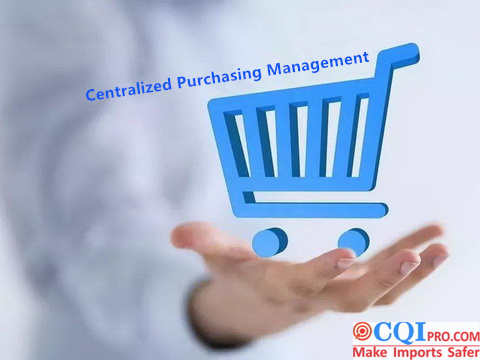
How Will Small Importers With Less Office Arrange the Work?
In order to strengthen supply chain management, small and medium-sized importers set up purchasing offices in China, usually to strengthen supplier development, sample development, arrange shipment matters and give attention to product quality control. Usually, the importer will first recruit a head of the office in China, and then the head will recruit other personnel. Generally, a foreign trade clerk will be responsible for sample follow-up and coordination of shipment arrangement, so that the office can basically operate. At the initial stage of the establishment of the office, the head of the office will concurrently take all the functions, from new factory development, factory visit, sample development, quality control, shipment arrangement and even payment to the factory. With the increase of purchasing business, all kinds of work have increased, and the person in charge has to recruit new employees to improve the various work functions of the office, who will do important work and manage the daily operation of the office as well.
Traveling is a very hard job, and the product quality inspection before shipment in the factory is the most critical loop to control the product quality. The person in charge of the office has limited energy and time in a single day, so he recruits several inspectors to take charge of traveling to the factory for inspection. These inspectors are responsible to the head of the office. Even if the inspectors find quality problems, the head of the office basically has the final say on whether to allow the factory to ship, and the inspectors are not responsible for the product quality itself. Under such a quality control mode, if the goods sent abroad have quality problems, in order to be responsible to the headquarters, the head of the office dismisses the inspector in charge of this order inspection, which is the routine solution to solve the problems. This seems reasonable. The inspector is responsible for the product quality, and the quality problem is of course the inspector’s work error or lack of working ability. Dismissal is inevitable and in line with practice. Headquarters will naturally think that it is appropriate for the head of the office to do so. However, this view is unconvincing for the practitioners of supply chain management in international trade, and it is just to cope with the importers who don’t understand supply chain management.
Imagine that the head of the office is responsible for developing a new factory and negotiating price with factories. Before the product is shipped, the inspector goes to the factory to inspect the product quality, and finds out the quality problems. If the factory can’t rework in a short time, the head of the office is forced by the pressure of overseas delivery and has a private friendship with the factory to allow the factory to ship directly. Such things often happen in purchasing offices. However, foreign importers have no choice but to rely on the professional level and professional ethics of the head of the office. Therefore, the head of the office is very powerful, absolute monarch. If the purchase order is large, Chinese suppliers and factories will supply him/her as an emperor. Taking bribes and taking huge kickbacks is the norm in this industry. Therefore, many small and medium-sized importers will send staff from their own countries to serve as managers or responsible persons in China offices. This can solve the problem of accepting bribes to a certain extent, but it will produce other problems. This topic will not be discussed in depth here.
If importers purchase all kinds of goods from different regions in China, it is normal for inspectors in the office to travel all over China. China’s major export regions and provinces include Guangdong, Fujian, Zhejiang, Jiangsu, Hebei, Shandong, central and western provinces, Hunan, Hubei, Henan, Guangxi, Shanxi, Shaanxi, Liaoning and so on. Although China’s transportation network is very good, it is still very hard for inspectors to travel across provinces. After all, it is not easy for anyone to spend 4 or 5 hours on the inter-provincial train. For example, it takes nearly 6 hours to take the train one way from Shenzhen to Quanzhou Factory in Fujian. In addition, it takes 1 hour on the way from home to Shenzhen Railway Station and 1 hour from Quanzhou Railway Station to the factory. The total one-way trip is close to 8 hours, which has not yet started the product quality inspection. The inspector has been working for nearly 8 hours and is physically and mentally exhausted. Can you expect him to complete the inspection work in high spirits? Man is not a machine, so he doesn’t have to rest. From the factory’s point of view, it is against the Chinese tradition of hospitality to let the dusty guests (the inspectors took a 6-hour bullet train all the way to the factory) go to work without rest. The factory usually arranges the inspectors to have lunch, and it is usually 2 or 3 o’clock after lunch, which directly takes up limited working time. Since inspectors are on business trips across provinces, they usually stay overnight in the local area on the same day. It seems that there is still a lot of time to make inspection for the goods slowly. However, inspectors are generally exhausted at this time, their inspection efficiency is declining, their thinking reaction is obviously slow, and there is a voice in their hearts, “Hurry up, just look at it, the factory seems to be OK,on the whole …”, at this time, ordinary factories will also say understandingly that you have worked hard on business trips, finished early, and had dinner then go back to the hole to have a rest early.
Because the distance is too far, the inspector is in a disadvantageous condition from the beginning, and his body is exhausted, and his work efficiency, judgment and willpower are obviously reduced. In the communication with the factory, it is easy to be defeated by the small favors of the factory.
Calculate the cost of this inspection. The inspector starts from home to taxi 50 at Shenzhen Railway Station, 230 at Shenzhen-Quanzhou Railway Station, 350 for hotel rent, 80 for taxi 80 from Quanzhou Railway Station to factory, plus the return trip. The transportation cost is 50*2+80*2+230*2 = 720, and the inspector’s allowance on business trip is 200. The average monthly salary of inspectors is 8,000 yuan, plus five insurances and other general 9,500 yuan /22=430 yuan for average daily wages of inspectors.
Total cost of this inspection: transportation cost 720+hotel cost 350+daily allowance for business trip 200+average daily work 430 *2= 2130 RMB (US$ 313, exchange rate 6.8);
The inspector spent two days and 16 hours commuting, but the effective working time in the factory was less than 2 hours. From the point of view of company operation, it is very uneconomical to invest so much cost compared with the income obtained. If the top management of the importer knows that the Chinese office perform the quality inspection with high cost and low efficiency, it will definitely require the Chinese procurement office to rectify and improve the efficiency of capital and personnel operation.
Shortcomings of Small Importers With Less Office to Have Inspectors
For importers, without alternatives, it is very expensive for their inspectors to travel to factories all over China to control the product quality, and the resulting costs can be included in the company’s operating costs. However, for inspectors, working so hard for a long time is overdrafting their health. If the salary is high, take advantage of the money, be young, and take it as a short-term transitional job at the expense of health, and earn some money and work experience in 1 or 2 years. But as a long-term job, it is not suitable. If the salary paid by the office to inspectors is not competitive, it is normal for inspectors to leave. If we want to maintain the number of inspectors, we have to face the reality of constantly recruiting inspectors. In China, there are many job opportunities, and almost no one will be content with the status quo and willing to accept a job with poor working conditions and uncompetitive salary.
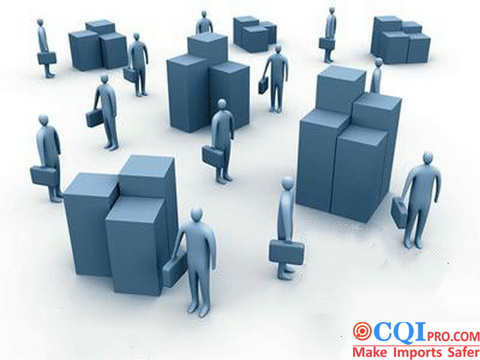
On the contrary, if a job is very hard, and the salary is average, but there are still people flocking to it, it shows that there must be something desirable in this job, either you can learn skills, or you can get personal connections, or you can get a lot of gray income. This is the status.
Basically, inspectors who are willing to work in the importer’s China office generally hold the following mentality. The first one is to pay attention to the possible English working environment in the office, which can be improved at least in English reading and writing. Some offices are directly connected to foreign countries, and inspectors can also exercise oral English and listening. Secondly, some inspectors want to change the environment, accumulate the experience of first-party inspection as buyers’ inspectors, and improve the experience of inspection industry. Thirdly, some inspectors have heard that the Chinese offices of foreign enterprises are directly managed by foreign headquarters, with higher salary and flexible working hours. Fourthly, some inspectors regard the working experience in the importer’s China office as an important working experience for the importer’s procurement. Comprehensive evaluation of these four situations, the first, second and fourth, are basically short-term behaviors, and the third requires the company to pay competitive salaries. However, if the business trips are too frequent and too hard, they will eventually leave their jobs. After all, physical health is their own, and everything else seems so unimportant compared with health.
To sort out, the daily work of the inspector in the importer’s China Procurement Office basically involves going on a business trip when there are inspection tasks, resting at home when there are no inspection tasks, waiting on standby, and occasionally going to the office to help. It is often necessary to travel across provinces to foreign factories for product quality inspection. If there are more than two trips across provinces in a week, they are basically exhausted. Moreover, the sense of accomplishment of this kind of business trip is very low. From the above example, the inspector travels from Shenzhen to Quanzhou factory in Fujian Province for 16 hours, and the effective working time in the factory is only 1~2 hours, and the whole person is exhausted physically and mentally. Under such physical conditions, for inspectors, the inspection work is just going through the motions, and the inspection report is just coping. After all, to complete a professional and effective inspection work requires inspectors to maintain sufficient mental and physical strength. If an inspector looks at the product quality with his eyes instead of his brain, he is basically the lowest-level inspector, which is called a rookie. If the head of an importer’s office only understands the quality inspection work in this way, his/her knowledge of supply chain management is too shallow. Of course, if he/she intends to do it, it will be discussed separately.
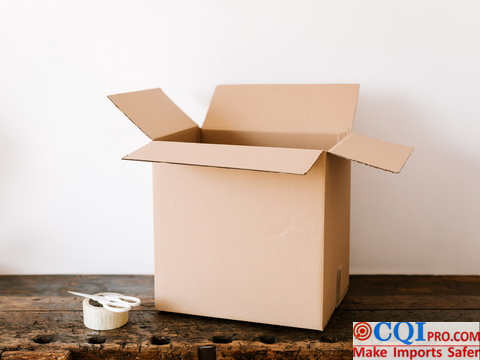
With the above analysis, we know that the existence and working conditions of inspectors in the importer’s China procurement office are unhealthy and unsustainable. Basically, it is to change a batch of inspectors in 1 or 2 years. In this way, the inspection function of the procurement office is maintained. Importer’s capital cost is high, but the product quality management effect is poor. Moreover, the high turnover rate of inspectors, whether active or passive, is quite unfavorable to team building and corporate culture building. The inspector can’t agree with the company and knows that he will leave the company within 1 or 2 years, so the short-term interests of the individual are the first priority in the work, and the interests of the company will not be considered basically. If the inspector holds such a mentality at work, how can he inspect the goods well? We should know that the daily work of inspectors is unsupervised and requires self-discipline. Although the importer’s inspector is the most basic staff in the purchasing office, it is the most critical link for the supplier before shipment. If the inspector thinks that there is something wrong with the product quality, which leads to the factory’s failure to ship in time, it will cause huge losses to the factory. Therefore, in the eyes of the factory, the inspector has great power to decide whether the goods can be shipped smoothly. The boss of the factory has to try every means to win over the inspector and cultivate private feelings, so that the interests of the inspector and the factory can be bound appropriately. Therefore, if you know too little about the living and working environment of the inspector, you think that the inspector’s job is very simple, that is, send inspectors to go on a business trip to the factory to inspect the goods, and you can’t manage the inspector team well without a deep understanding of the inspector’s internal needs, which leads to the product quality management in the supply chain going through the motions and being ineffective.
In short, for the inspector, it is very hard to travel to a far-away city, which is physically tired; Moreover, because the quality of the factory is unstable, it is necessary to bear the burden when quality problems arise, which is psychological fatigue. This is a very insecure job, so in most cases, inspectors do it first, while riding a donkey to find a horse. If there is any interest, they will get it first. If something goes wrong, they will change jobs. Most of them cope with the current job with this mentality. Since the characteristics of the job determine that the job can’t last long, let’s take it one step at a time. This makes the short-term behavior of inspectors popular.
In addition to the factory inspectors who inspect in our factory and do not need to travel, the remaining inspectors who need to travel frequently generally have the following types:
The first one is that inspectors of Chinese trading companies (importers’ Chinese suppliers) go on business trips. Since trading companies generally operate few products and generally choose factories in specific production areas, inspections generally go on business trips locally. In order to reduce business risks and labor costs, trading companies generally recruit people with low academic qualifications who do not know English but have experience in manufacturing related products in factories as field inspectors.
Second, it is a third-party inspection company. Because the inspectors are usually stationed in the cities where the main product manufacturing bases are located for a long time, although they often have to travel across cities, because of convenient transportation and generally can be controlled within 90 minutes by car, basically the inspectors will arrive at the factory around 9: 30, and they are full of energy. The effective working time in the factory is generally not less than 4 hours, and there is enough time to complete a professional and reliable inspection. We have seen enough inspection quantities, and it takes time to do enough tests. The technical documents and files are carefully checked on site, and the inspection photos are very rich, generally ranging from 100 to 200 pcs in one inspection. In addition, professional and detailed inspection reports are introduced, and customers can basically experience the on-site inspection situation in the process of reading the reports. Even more, some important information is provided to customers by video. In order to maintain a high professional level, the starting point for the third-party inspection companies to recruit inspectors is undergraduate, who know English and usually have an engineering background. The comprehensive quality of such inspectors is far from being comparable to that of inspectors of Chinese trading companies.
Due to the short distance from the inspector’s station to the factory, the round-trip transportation time can be controlled within 3 hours, which basically does not require high physical fitness and can be adhered to for a long time. Moreover, working hours are free and flexible, with a high sense of job accomplishment. The inspectors are familiar with the local customs and are energetic, so they are not easily infected by the small favors of the factory. Please refer to another blog post about the benefits of importers outsourcing inspection business to third-party inspection companies.
CQI Inspection’s Comments And Summary
For importers, who think to manage the supply chain in China is simply to recruit a head of China office, who will be fully responsible for the management of China’s supply chain. This is a very efficient means for companies to acquire supply chain management capabilities in a short period of time, but the risks are also huge. The heads of many importers’ Chinese offices or branches have finally turned their branches or offices into their own private commercial organizations. Make use of the resources of the head office and their own power in the office to earn their own money. In their eyes, the inspector team in the office is a natural shield to cover up the fig leaf of inferior suppliers. Usually, the person in charge will have some internal transactions with such factories. Outsourcing product inspection is a low-cost and efficient product quality control scheme. More importantly, it can use the independence of the third party to obtain real information on the quality of bulk products. In this way,as the last measure to control the supply chain risk of the office.
CQI5 is committed to providing importers worldwide with product quality inspection services that far exceed those of our peers. If you are planning to import or have imported from China or Southeast Asian countries, please contact us cs’@’cqipro.com to learn more about how we can make your imports safer.
This article is an original article for CQI Inspection, who is committed to providing high-quality product inspection technology and know-how sharing for global importers and retailers to make imports safer.
All rights reserved. The contents of this website provided by CQI Inspection may not be reproduced or used without express permission.
For reprint, please contact with CQI Inspection, thank you.
